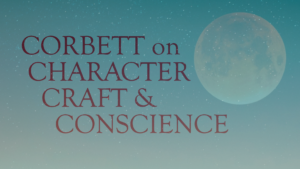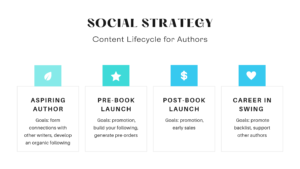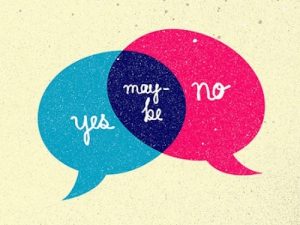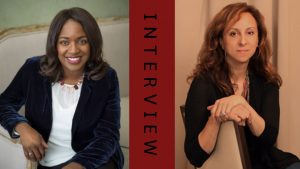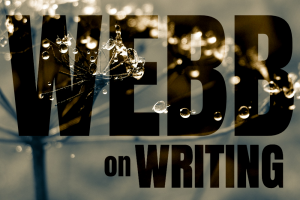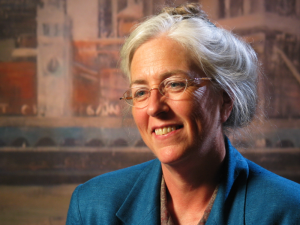traditional publishing
We’re honored to introduce you to today’s guest, author Catherine Adel West. Catherine’s powerful debut, SAVING RUBY KING, released just over a year ago and made an instant impact. TODAY, it was released as a paperback. It’s a multigenerational story about two friends–Layla and Ruby–and the lengths they’ll go to save their lives, their families and their friendship. Zakiya Harris, author of THE OTHER BLACK GIRL, calls Saving Ruby King is “a stunning force of a novel that has everything anyone could want in a family saga…”
We’re thrilled to learn that Catherine’s sophomore effort, BECOMING SARA KING, is in the works and will be released in 2022. More about Catherine from her bio:
Catherine was born and raised in Chicago, IL where she currently resides. She graduated with both her Bachelors and Masters of Science in Journalism from the University of Illinois – Urbana. Her work is published in Black Fox Literary Magazine, Five2One, Better than Starbucks, Doors Ajar, 805 Lit + Art, The Helix Magazine, Lunch Ticket and Gay Magazine. Catherine’s short story ORION’S STAR is featured in the forthcoming body positive anthology EVERY BODY SHINES (Bloomsbury, May 2021). In between writing and traveling, Catherine works as an editor.
Learn more about Catherine on her website, and catch her on Twitter or Instagram under the handle @cawest329.
Advocacy Is Not A Bad Word
My momma always told me, “Think before you speak.” I rarely applied this lesson when I was a kid. To me it somehow meant I wasn’t fully telling the truth, that there were little parts of me I couldn’t fully express. And my truth, as egotistical as I realize this belief is now, was the main one, the one that needed to be heard more than anything or anyone else.
Now out of my youth (somewhat), I realize my mom was teaching, or trying to teach me, about diplomacy; that there are various ways truth can be experienced and told. And my point can be made without razing the land, burning bridges, ignoring others’ feelings and thereby absolving myself of the consequences of my mouth and actions.
Nowhere have I learned this more than advocating for myself as a writer, as a black woman, as someone who’s always been desperate to be heard because the world does its absolute best to silence my voice.
Writing is the way I shout. I express. I fight. Writing is the way I try to advocate for my people, but I had a hard time properly advocating for myself.
When I got my first book deal, I was anchored to the idea of gratitude. So honored someone wanted my little ole book, I never stopped to think about what I wanted. How did I want the book to be represented? Marketed? How would it be edited? Could I trust someone else’s instincts to not sanitize the black experience but celebrate it? Could I trust myself to hold others accountable?
Was it wrong to ask myself these questions?
No. It wasn’t.
Making sure I knew what I wanted and getting what I wanted took time. It was my debut novel and something very close to my heart. And, after a lot of trepidation, […]
Read MoreOne learns a lot about one’s writing habits—and oneself—when cutting almost 19 percent of a manuscript, paring it from 119,000 words (476 pages) to 97,000 words (409 pages).
Mind you, this wasn’t a first draft—it had been reviewed twice by a Zoe Quinton, a developmental editor I very much respect and trust (and whom I interviewed here at Writer Unboxed). After our work together, she said:
“SO well done. I’m blown away by the amount of work you did, and how well you integrated all the pieces together to form a truly stunning, gripping whole. I loved every minute of it, and nearly cried at the end, even knowing what the basic setup would be. You’ve got a hell of a book here, one of the best I’ve ever worked on. Bravo.”
Once I began submitting to agents, however, with the exception of two agents I’ll discuss shortly, I either heard nothing back or got the seldom helpful, “Not for me, good luck with it elsewhere.” The two agents who provided some feedback said two very different but very helpful things. (It’s currently under submission with two other agents, one of who seems particularly receptive.)
The first of the two agents who provided notes complimented my writing but remarked that my use of a gay, bi-racial (Cambodian/African American) woman main character made the book virtually impossible to sell in today’s cultural environment given the #mystory movement.
The second agent, despite liking a great deal about the book, comparing it at one point to American Gods, felt a lack of “narrative urgency” in the writing.
In discussing all this with Zoe, she responded that my female character’s sexuality and race had raised no reds flags for her, and she is sensitive to such things. She also found comparing the book to American Gods then bemoaning a lack of narrative urgency puzzling, as Neil Gaiman’s novel is hardly a full-throttle page turner, but shares some of the philosophical, mythical, and historical texture of my book.
Let me be clear: I in no way fault Zoe for the extensive post-edit rewrite I ended up conducting. Her job was to read the book, note its shortfalls as she saw them, help me correct them, while at the same time being conscientious of what she saw as my voice, my style, and the type of book I seemed to want to be writing—a big, sprawling, dystopian journey covering a great deal of the American landscape with a mythical backdrop.
But given my respect for the two agents who gave me notes, I felt obliged to pay attention to what they were telling me.
Read MoreThis summer, I decided I needed some new audio books to help occupy my brain during the long daily walks my cardiologist ordered me to take. I’d been rotating between a couple of good recordings of the Tao Te Ching and Chuck Palahniuk’s excellent Consider This (about which I raved in my previous WU post), but it was time for something new. While I find significant value in repeatedly listening to particularly good nonfiction audio books, I was hungry for some actual storytelling. More importantly, I wanted a story that would LAST, ideally through many hours of walking. Ultimately I wound up going with Herman Melville’s classic, Moby-Dick.
It seemed an ideal choice, for a couple of reasons. First and foremost, it’s long. Seriously long. With a word count that exceeds 200,000, most unabridged audio versions of Moby-Dick are 25 hours long or more, depending on the speed of the narrator.
And that brings up another consideration: I wanted a good narrator, if I was going to be spending so much time with him or her. Because the book is in the public domain and very popular, there is a wide range of recorded versions, so I “auditioned” a dozen or so samples before deciding on this excellent audio book narrated by Anthony Heald. After spending many hours with Heald in my head (so to speak), I’m convinced I made the right decision: He does an utterly marvelous job capturing the many moods of Melville.
I said I had two reasons for choosing this book, so now I’ll confess the main one: I’ve never actually read Moby-Dick. I thought I had – I mean, weren’t we all forced to struggle through it in high school English? – but once I looked at the first chapter, I realized it didn’t ring a bell at all. For one thing, within just the opening pages I encountered a cynicism and wit that I never would have associated with Melville, whom I assumed was all biblical furrowed-brow doom-and-gloom, all the time. I quickly realized that while I may have read about the book – and as a kid I loved the classic movie starring Gregory Peck – I’d never actually read the original book. This is a sensitive point for me, reminding me what a large gap there is in my cultural literacy, as I have read embarrassingly few of the commonly accepted “classic” books. So when the spirit moves me, I try to address that gap, one book at a time.
Ready to commence my journey with Ishmael and company, I began huffing and puffing my way around the neighborhood with my earbuds delivering Heald’s spectacular narration. Within half an hour, one thing was very clear to me: I didn’t know Dick. Moby-Dick, that is.
This was nothing like the book I’d anticipated. Melville’s voice (particularly as transmitted by Heald) was clever, witty and even… I struggled to find the word… whimsical at times. Definitely not the word I’d expect to use about the guy who gave us Ahab, that dark-and-stormy one-legged sea captain […]
Read MoreThere are no easy answers in writing and publishing, right? When I went through some of the biggest changes in my writing career — for example, getting an agent, or inking my first publishing deal — I thought, “Oh good, now everything’s different.” Surprise! Some things are different, but some things remain very much the same. And no matter what stage of your writing career you’re in, whether you’ve published zero books or two dozen, you never really get to stop worrying. All that changes is what you’re worrying about.
So! Why am I claiming that there’s one way to make everything better in your writing and publishing career? Because there’s one thing that you might be particularly worried about doing, and I’m here to tell you it’s the one thing you need never worry about.
Here’s the one thing you can always know it’s right to do: ask.
Not sure whether you should follow up on hearing from that agent you sent your full manuscript to three months ago? Ask. Wondering whether that fellow writer you met at a conference one time might be interested in exchanging manuscripts for a beta read? Ask. Thinking it might be a good idea to ask that well-known author you met at a reading once to take a look at your soon-to-be-published manuscript for a blurb? Ask. Not sure whether your publisher is delivering the marketing punch you want and think your agent might have an informed opinion on the matter? Ask, ask, ask.
There are ways to go about asking wrong, sure. Don’t follow up with agents too frequently or too aggressively. Don’t hassle fellow writers. Don’t presume that the author you met once will definitely deliver a blurb, and certainly don’t trash them on social media if they don’t say yes or even respond. (I’ve seen it. It’s not pretty. And it doesn’t make them look bad; it’s not a great look for you.)
But a humble inquiry? From you to virtually anyone involved in the publishing process?
Read Moreimage by Visionello
Yesterday, I spent most of the day working. In the end, I wrote 40 words. And it was a successful working day, not a failed one; those 40 words will make someone very happy.
A poet, I suppose, might be able to make the same statement, but I haven’t written poetry in years; what I’m talking about here is writing a blurb for a less-established novelist. A lot of time goes into reading an entire book and thinking through how to phrase your praise. Though it’s time-consuming, it’s also one of my favorite things.
If you’re looking for wisdom on requesting a blurb, let me point you to Barbara Lynn Probst’s recent post on the subject: lots of great guidelines and thoughts here. I figured I’d focus instead on what to do once a blurb request comes in. Maybe it’s from an editor or agent through your e-mail; maybe it’s a Twitter or Facebook message from an unknown writer; maybe it’s a verbal request from an acquaintance or friend (remember when we used to see people at conferences? good times). There are four potential responses, each of which I use with different frequency. Let’s walk through them one by one:
Read More
At the beginning of 2020 (which must be about 40 or 50 months ago, right?), I stumbled onto a book that literally changed how I think about writing. During an email exchange with my dear friend and fellow writer Jocosa Wade, she recommended an early novel by Chuck Palahniuk, whom I only knew as the guy who had written Fight Club.
I loved the movie by the same name, but had never read any of his novels. To be honest, I’d always been a little afraid to read him, figuring he would be way too hip, dark and cynical for me. But Jocosa convinced me it was time to take the Palahniuk plunge.
Being a perennially cheap bastard, I hit the public library. Yes, this was back in that gilded age when I would still do things like a) leave the house, b) go to a public library – or any other public place, and c) actually touch books – or anything else that other people had likely touched. Ah, such sweet pre-Covid memories!
In searching the library’s catalog, I noticed Palahniuk had just released a new nonfiction book: a writing how-to called Consider This. The book had just come out that month, but to my amazement my local library system already had a few copies, so I nabbed one. My three-word review is below:
DAMN, it’s good.
Seriously, after just the first two chapters, I put the book down and got on the computer to order my own copy for my Kindle, so I could begin taking notes in it. Yeah, it’s that good. The thoughts and ideas Palahniuk shares are clearly stated and directly actionable, not pie-in-the-sky theoretical stuff. And he has such a unique way of looking at some of the most basic components and mechanics of storytelling, which he explains in ways that immediately make sense.
I’ve read a TON of writing how-to’s (it literally is my idea of a good time on a wild Friday night), and it’s been impossible not to notice that many of them are expressing VERY similar ideas. Not Chuck. He looks at writing in some ways that are completely new to me. And he’s a marvelous teacher.
For example, Chuck suggests that we incorporate these three elements in our storytelling: description, instruction, and either exclamation or onomatopoeia.
Instruction? Onomatopoeia? Wait, what? Here’s how Palahniuk clarifies this directive:
Most fiction consists of only description, but good storytelling can mix all three forms. For instance, “A man walks into a bar and orders a margarita. Simple enough. Mix three parts tequila and two parts triple sec with one part lime juice, pour it over ice, and—voilà—that’s a margarita.”
Using all three forms of communication creates a natural, conversational style. Description combined with occasional instruction and punctuated with sound effects or exclamations: It’s how people talk.
Throughout the book, Palahniuk repeatedly touches on tangible, nuts-and-bolts aspects of writing in ways I have never before seen discussed.
Read MoreI’ve been watching this show called The Bold Type about three young women who work in different departments of a fashion magazine called “Scarlet”. One of the women is a stylist, one works in the social media marketing department, and the other is a columnist. It isn’t the best show you’ve ever see, but it’s fun, the characters are endearing, and the show surprisingly strikes a real chord at times about women’s issues and also questions of identity. I just finished an episode in which the columnist is struggling to write about an assigned topic. She keeps avoiding it and when she finally sits down to write, the words are all wrong. They’re phony and don’t ring true and she becomes blocked. She soon comes to realize it isn’t just writer’s block—it’s really an emotional block of some kind. Through the course of the show, she realizes she has to face her fears to unlock the words, dig deeply to make it an article worth reading.
I started three different articles for this month’s post and abandoned them all. And as I stare at the cursor on my screen two hours before this post needs to go live, wondering what in the world I can say that feels authentic, that would be worth reading, at last, I exhale. What I need to talk about is my own fear, and what’s happening behind closed doors in my writing life, even if it lays bare the sort of emotions authors don’t put out there all that often once they’re published. Perhaps because we’ve grown accustomed to the rosy social media posts announcing all of our successes, or the little things that make us happy in our day-to-day lives. Painting a picture of ease and good fortune to save “face” and all of that.
Read More
Hi, David Corbett here. This month I’m handing the wheel over to Laurie R. King, a dear friend and the New York Times bestselling author of 27 novels (two series and several stand-alones) and other work, fiction and non-fiction. She has some excellent advice to share for those of you considering a mystery series.
Laurie’s fiction includes the Mary Russell-Sherlock Holmes stories (from The Beekeeper’s Apprentice, named one of the 20th century’s best crime novels by the IMBA, to this year’s Riviera Gold, due out this week), as well as a modern-day series featuring Homicide Inspector Kate Martinelli of the San Francisco Police Department. She has won an alphabet of prizes from Agatha to Wolfe, been chosen as guest of honor at several crime conventions, and is probably the only writer to have both an Edgar and an honorary doctorate in theology. She was inducted into the Baker Street Irregulars in 2010, as “The Red Circle.”
Take it away, Laurie.
* * * *
Ah, there’s nothing like writing a mystery series. Standalones require so much work—reinventing the world each and every time. New characters, new situations, like moving house with every Page One. But a series is like a family reunion (even, as these days, a virtual one), right? You make yourself comfortable, you settle down, you prepare to catch up…
Well, it is true that devoted readers like to revisit familiar characters. And it’s true, some bestselling series novels are more or less interchangeable, with the ritual of the plot and fight scenes and banter giving precisely what people want.
Still, sometimes the reader (and more often, the writer) wants a change—but one that isn’t a change. Something in the same general world, yet new and enticing and fresh. I know that the times I’ve found myself writing the fourth novel in a row about the same exact characters are the times when I’ve started hurting them, a not-so-subtle vote of resentment. But how to keep a series from turning into a family reunion where That Uncle makes the same joke over and over? Well, here’s half a dozen things that have worked for me.
Hurt your characters. You can try resentfully upping the stakes by doing damage to your central characters. You might even be tempted to do a Conan Doyle and kill off your protagonist (though that was a temporary demise.) But you need to remind yourself what happened to Nicholas Freeling’s Arlette Van der Valk series, which began when he killed off her policeman husband after eleven successful outings. What, you don’t remember Arlette’s series?
Exactly.
Maybe we should look at less drastic ways of keeping your readers, and yourself, eager to start a new book.
Travel your characters. I started writing a series about a girl who meets an ageing detective on the Sussex Downs. Which made for a great meet, since that was where Sherlock Holmes retired, but there’s even less scope for dastardly murder on the Downs than there is in Cabot Cove. So beginning with that first book (The Beekeeper’s Apprentice), they wandered. And in subsequent volumes they went far afield: Palestine, Lisbon, Morocco, India, Japan… Each of those places, particularly in the 1920s, had a distinct personality and a new set of problems—political, social, economic, criminal. […]
Read MoreNearly every professional writer I know has dire things to say about sophomore novels, and for good reason. You don’t have to look very far at both trade and informal reviews to find scathing assessments of this or that writer’s “lackluster sophomore effort” or “disappointing follow up” to their popular debut novel. The second novel can feel doomed before you even write it.
2019 was a special year for me, because it marked the publication of my sophomore novel. More accurately, one of my sophomore novels, because courtesy of the myriad and complicated layers of publishing, I am in the unusual and somewhat unenviable position of having published three debut novels, and three sophomore novels.
My first two novels were self-published under a pen name and, while the first one wasn’t a runaway success, it found its rather obscure niche. Year after year, it continues to sell in modest but reliable numbers. The second one, despite fitting squarely in that obscure niche, doesn’t sell at all and never has.
My next two novels were published by an independent press. The first one did well for a debut novel by an unknown writer from a very small publisher. It got some nice reviews and sold fairly well, all things considered. My second small press book foundered out of the gate. Unread, unreviewed, and generally unloved by readers who liked the book that came before it.
Then in 2016, what was technically my fifth novel was published by a major New York publisher. Because my first two novels under my own name had been with a small press, that first Big 5 book was billed as my “debut” novel. I got a great deal of the attending publicity and hype that comes with a well-received debut. There were times when it felt like publishing had miraculously restored my virginity, or at least made one last valiant effort to present this middle-aged redneck debutante to literary high society.
That third debut succeeded beyond my wildest dreams, but shortly after it made the New York Times bestseller list, I had to get serious about writing my next book. Hopefully my final sophomore novel. It came out last year and has generally been received in true second novel fashion. If first books are like first children, who get elaborate christenings and meticulously curated baby books, then The Reckless Oath We Made is a second child, who got a hurried sprinkling and a My First Year that is full of blank pages and blurry photos. Ah, we wanted to get a picture of the baby’s first steps, but the phone was on the charger.
There’s a common perception that a successful debut will help sell a second novel, but I don’t know any writers who believe that or who have experienced that. Part of the problem is managing expectations, because not every reader is willing to follow a writer to the next thing. I get a surprising (to me) amount of mail asking when I’m going to publish a sequel to All the Ugly and Wonderful Things. The answer is never, but it’s been enlightening to see the degree to which some readers attach to a book and don’t […]
Read More


